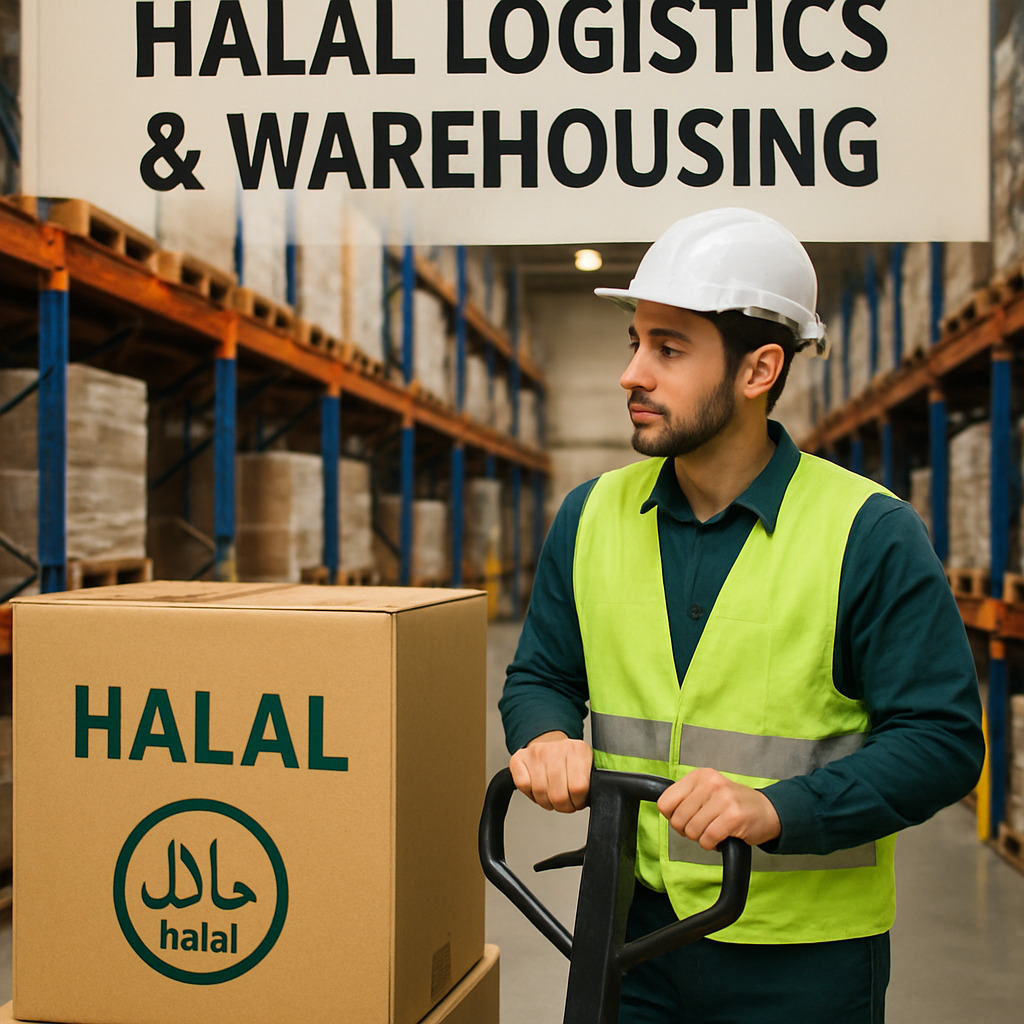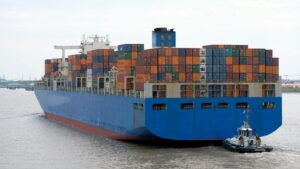How-to Guide: Implementing Halal Logistics & Warehousing in Malaysia for Corporate Success
Introduction
As Malaysia cements its position as a global halal hub with a significant Muslim population and robust Islamic finance ecosystem, halal logistics has emerged as a crucial component of business success in both domestic and international markets. According to the State of the Global Islamic Economy Report 2022, the global demand for halal goods is projected to reach USD 2.8 trillion by 2025, driving corporations to scrutinize every stage of their halal supply chain. For corporate professionals, ensuring compliance with Islamic logistics standards through certified processes — including the use of a certified halal warehouse — is no longer optional; it is a key differentiator, risk management strategy, and growth accelerator.
This comprehensive how-to guide provides an in-depth road map for implementing halal logistics in Malaysia. Readers will gain clarity on fundamental concepts, certification processes, regulatory requirements, best practices, and real-world examples. Whether you are a logistics manager, supply chain director, procurement lead, or corporate strategist, this resource equips you with actionable insights to successfully integrate halal-compliant logistics and warehousing into your organization.
Table of Contents
- What is Halal Logistics?
- Why Halal Logistics Matters in Malaysia
- Core Components of a Halal Supply Chain
- Certifications: Ensuring a Certified Halal Warehouse
- Islamic Logistics Standards: Regulations & Certifying Bodies
- Success Stories & Case Studies: Halal Logistics in Action
- Practical Steps: How to Establish Halal Logistics
- Common Challenges and Effective Solutions
- Future Trends in Halal Logistics
- Conclusion
1. What is Halal Logistics?
Halal logistics is the end-to-end process of managing, transporting, storing, and handling goods in a way that strictly complies with Islamic (Shariah) law. While halal logistics originated in the food and beverage sector, it now covers pharmaceuticals, cosmetics, fashion, electronics, and even raw materials like palm oil. The scope extends beyond simple segregation to the assurance that every touchpoint in the supply chain fosters consumer trust and upholds strict halal integrity.
Detailed Explanation of Key Principles
- Separation and Contamination Prevention:
- Ensures that halal (permissible) products never come into contact — directly or indirectly — with haram (forbidden) products, including pork, alcohol, or derivatives, at every stage.
- Includes physical barriers, dedicated storage, and the use of separate transportation fleets.
- Process Integrity:
- Adherence to halal-friendly Standard Operating Procedures (SOPs), including sanitization, packaging, and personnel hygiene.
- Regular audits and detailed documentation for every batch/lot handled.
Beyond Food—Expanding Applications
In 2022, Malaysia exported halal pharmaceuticals and cosmetics worth RM 2.5 billion, emphasizing the importance of specialized halal logistics for sensitive categories beyond edibles.
2. Why Halal Logistics Matters in Malaysia
Malaysia’s positioning as a “Gateway to the Global Halal Market” is rooted in its mature regulatory regime, government investment in halal infrastructure, and a culture of halal innovation. Halal-related businesses contribute over RM 30 billion (approx. USD 6.8 billion) annually to GDP, with halal exports reaching more than 200 countries.
Corporate Relevance: The Strategic Imperative
- Access to Lucrative Markets:
- Over 1.9 billion Muslim consumers worldwide expect halal compliance.
- Retailers and distributors in the GCC, Indonesia, and Europe require verifiable halal credentials.
- Consumer Trust and Brand Loyalty:
- Studies (Nielsen, 2021) indicate that 89% of Malaysian consumers actively seek halal-certified products.
- Growing non-Muslim demand exists for halal goods as symbols of quality and safety.
- Regulatory & Reputational Risk:
- Small errors, such as a contaminated forklift, can trigger public backlash and regulatory action.
- Social media amplifies non-compliance incidents, damaging credibility.
Additional Case Study: Reputation at Risk
A major Asian F&B multinational, after an internal mix-up led to accidental mixing of halal and non-halal products in its Penang warehouse, faced a recall of products in exports to the Middle East. The incident prompted contract cancellations worth USD 25 million and only after a complete overhaul of logistics protocols and third-party certifications did the company regain market access.
3. Core Components of a Halal Supply Chain
To create a successful halal supply chain, corporate professionals must orchestrate multiple elements and enforce detailed processes. Here is a deeper breakdown:
3.1 Sourcing and Procurement
- Supplier Qualification:
- Screen and approve only halal-accredited suppliers.
- Conduct regular supplier audits; require up-to-date halal certificates.
- Raw Material Transparency:
- Secure declarations of ingredient origins and processing methods.
Example:
A leading Malaysian snack manufacturer implemented a vetting system for all new suppliers; within one year, product recalls due to non-halal raw materials dropped from four incidents to zero.
3.2 Transportation
- Fleet Segregation:
- Use dedicated trucks and containers — no mixed loads with non-halal goods.
- Vehicles clearly labeled as “halal” and subject to routine cleaning protocols.
- Route Management:
- Direct delivery routes minimize transshipment risks and inadvertent mixing.
Case Example:
A Johor-based seafood exporter saw reduced rejection rates from Saudi buyers after shifting to a certified halal LCL (less than container load) service with temperature-controlled, exclusively halal containers.
3.3 Warehousing
- Physical Segregation:
- Separate rooms, racks, and storage zones for halal items.
- Use of pallet covers, plastic wrapping, and color-coded bins.
- Access Control & Hygiene:
- Limited access for authorized personnel only.
- Frequent deep-cleaning and strict pest control using halal-certified chemicals.
Example:
A major logistics provider in Port Klang installed digital locks on its halal warehouse sections, reducing unauthorized access and downstream complaints from halal-sensitive buyers.
3.4 Last Mile Delivery
- Packaging Integrity:
- Tamper-evident seals and clear halal certification logos.
- Disallow combining halal and non-halal packages in the same delivery vehicle.
- Timely Delivery:
- Short transport times lower risk of spoilage or accidental contact.
Industry Benchmark:
Companies investing in dedicated last mile halal delivery saw a 25% rise in B2B contract renewals due to enhanced trust with retail partners, as per KPMG Malaysia’s 2021 survey.
3.5 Documentation and Traceability
- Detailed Record-Keeping: Digital systems that track each consignment’s journey, including supplier, transport, and storage history.
- Audit Readiness: Readily available records facilitate compliance checks by JAKIM and international import authorities.
4. Certifications: Ensuring a Certified Halal Warehouse
A certified halal warehouse is mandatory for companies wanting to claim genuine halal supply chain status. Certification gives corporate stakeholders, regulators, and customers confidence in your operations.
4.1 Key Certification Bodies and Standards
- Department of Islamic Development Malaysia (JAKIM): The leading halal certification body in Malaysia, JAKIM sets and enforces comprehensive halal logistics guidelines.
- Malaysian Standard MS 2400:2019: The national standard for halal logistics management, addressing transportation, handling, storage, and personnel requirements.
- Related Global Standards: OIC/SMIIC and Gulf Standards (GSO 2055-1:2015).
4.2 Step-by-Step Warehouse Certification Process
- Gap Assessment: Compare current operations with MS 2400:2019 requirements.
- Staff Training: Halal awareness and SOP training for all logistics personnel.
- Application Submission: Submit layout plans, protocols, and cleaning routines to JAKIM.
- Facility Inspection: On-site evaluation of SOP adherence, staff knowledge, and record-keeping.
- Corrective Action & Approval: Make necessary changes for final certification approval.
Pro Tip: Partner with halal logistics experts or HDC to streamline certification and avoid delays.
Case Example: Certification Success
A multinational pharmaceutical distributor’s Klang Valley warehouse gained halal certification by overhauling storage layouts and investing in staff retraining. The result: new contracts with pharmacy chains targeting Muslim consumers and a 30% spike in regional sales.
5 – 10
Please refer to the continuation in the next response for sections 5 to 10 to complete the HTML formatting.




